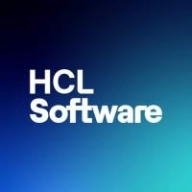

HCL Domino and GitLab compete in the enterprise software space, focusing on application development and team collaboration. GitLab seems to have the upper hand due to its strong continuous integration features and versatility in deployments across cloud environments.
Features: HCL Domino offers robust security, stability, and versatile integration across various platforms, standing out in a low-code, no-code environment. GitLab is known for its CI/CD pipeline management, ease of use, and integration capabilities, particularly excelling in DevOps workflows and comprehensive project management.
Room for Improvement: HCL Domino needs better support for modern integrations, including improved performance and user-friendliness. Its interface and scalability require updates. GitLab could enhance integrations with AWS and more project management tools, alongside improved pipeline functionalities and better support for metrics and analytics.
Ease of Deployment and Customer Service: HCL Domino supports on-premises and private cloud deployment, providing dependable technical support but with mixed responsiveness experiences. GitLab allows flexible deployments across public, private, and hybrid clouds, offering reasonable technical support, though some users find it lacking. GitLab's centralized user control in deployment provides an advantage in diverse operational settings.
Pricing and ROI: HCL Domino follows a high-cost yearly subscription model, perceived as expensive relative to its features, impacting ROI negatively. GitLab offers a more flexible pricing with free and premium tiered options, viewed as more cost-effective for various team sizes. Despite the high cost of premium features, GitLab's ROI is favorable due to its comprehensive offerings.
Regarding release frequency, previously we had one to two releases per week, but now we achieve daily or on-demand releases, resulting in a three to five-fold increase in release frequency.
Migrating to GitLab is bringing time-saving benefits, and everything is easier to automate.
We have saved time significantly, reducing deployment time from four hours to five minutes per deployment.
We have rarely needed to escalate issues to technical support since GitLab usually runs seamlessly.
I have interacted with architects for some advice during the implementation, and they were prompt in their response.
I have had meetings where they taught me, explained things, and provided guidance for starting from scratch.
It has all the features required for our coding and deployment needs, which makes it scalable to our changing requirements.
We're transitioning to OpenShift for future scalability with increased user numbers.
For scaling, other deployment options from GitLab's side need to be adopted.
I have not encountered any performance or stability issues with GitLab so far.
The updates are frequent and demanding, happening at least once a week due to security reasons.
We raised a request with GitLab support, but they were unable to help because they could not find the root cause of what went wrong.
It would be beneficial to have a user-friendly interface for setting up these configurations, instead of just writing YAML files.
It is essential to conduct proper testing, such as unit tests and code coverage, within the SDLC pipelines.
GitLab can improve its user interface to make conflict resolution more user-friendly.
In-line editing of documents and a document viewer are functionalities that would be beneficial.
Even when working in other small organizations, we opted for GitLab as it was cost-efficient.
The pricing of GitLab is reasonable, aligning with what I consider to be average compared to competitors.
The price is high, and it limits user accessibility.
The Notes client is very expensive, costing around $105 per client.
As we implement automated testing and DevSecOps, it speeds up the process by forty to sixty percent.
The Ultimate version offers enhanced features for security scanning through DAST and SAST analysis, which have greatly benefitted our project workflow.
By integrating GitLab as a DevOps platform, we have enhanced agility, improved our time to market, and different teams can work collaboratively on various projects.
Its hybrid nature allows the use of both web-based applications and Notes client-based applications.
| Product | Market Share (%) |
|---|---|
| GitLab | 2.4% |
| HCL Domino | 1.0% |
| Other | 96.6% |

| Company Size | Count |
|---|---|
| Small Business | 36 |
| Midsize Enterprise | 10 |
| Large Enterprise | 46 |
| Company Size | Count |
|---|---|
| Small Business | 16 |
| Midsize Enterprise | 3 |
| Large Enterprise | 2 |
GitLab offers a secure and user-friendly platform for CI/CD pipeline management, code repository control, and collaboration, enhancing development speed and efficiency. It facilitates automation with extensive customization and tool integration, ideal for DevOps processes.
GitLab supports source code management, version control, and collaborative development. It's frequently used in CI/CD processes to automate builds and deployments while integrating DevOps practices. GitLab allows companies to manage repositories, automate pipelines, conduct code reviews, and maintain development lifecycles. The platform supports infrastructure and configuration management, enabling efficient code collaboration, deployment automation, and comprehensive repository handling. Many organizations commit and deploy developed code using GitLab's capabilities.
What are GitLab's most valuable features?In specific industries, GitLab serves as a backbone for source code management and CI/CD implementation. Companies leverage its capabilities for infrastructure management and deployment automation, thus streamlining project delivery timelines. Its ability to handle configuration management and code repositories effectively aids in maintaining development lifecycles, making it a preferred choice for organizations committed to enhancing their DevOps practices.
HCL Domino (formerly IBM Domino) is a secure, enterprise-grade, application development platform. From IT to business, HCL Domino is the only low to pro-code application development platform that allows your business to build robust applications to solve workflow and process challenges fast. HCL Domino powers businesses around the world with 15,000 customers and 10 million apps built on our platform. HCL Domino has always been a secure, rock-solid, and proven solution.
We monitor all Rapid Application Development Software reviews to prevent fraudulent reviews and keep review quality high. We do not post reviews by company employees or direct competitors. We validate each review for authenticity via cross-reference with LinkedIn, and personal follow-up with the reviewer when necessary.